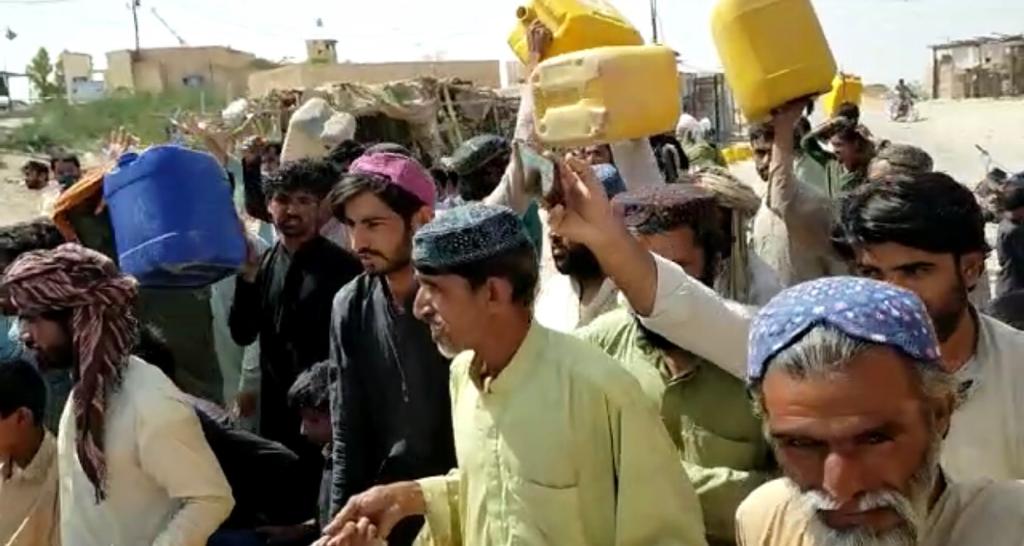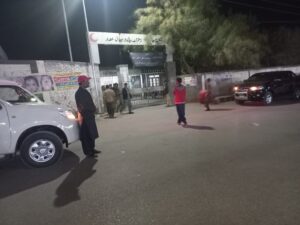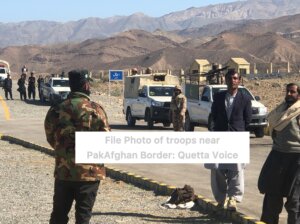Syed Ali Shah:
The parched lands of Balochistan, Pakistan’s resource-rich yet underdeveloped province, face a dire threat: water scarcity. As hydro-climatic patterns shift and socio-economic conditions evolve, this peril looms larger by the day, amplifying the challenges faced by both the populace and the environment.
The crisis is particularly acute in Quetta and other regions of Balochistan, where the specter of dwindling water reserves casts a long shadow over daily life. Over the past two decades, swathes of once verdant landscapes have succumbed to the encroaching desert as water levels plummet.
Unlike their counterparts in other parts of Pakistan, Balochistan’s inhabitants rely heavily on underground aquifers for sustenance, be it for drinking or agriculture. The ubiquitous sight of tube wells, churning out water from depths exceeding a thousand feet, underscores the desperation of a populace grappling with a diminishing lifeline.
This relentless pursuit of water has come at a cost. Orchards that once flourished in the northern and central reaches of Balochistan, renowned for their luscious apples and grapes, now stand neglected, their boughs bereft of fruit. The exodus from traditional agriculture, exemplified by the abandonment of apple orchards in Pishin and Killa Abdullah, reflects a stark reality: water scarcity dictates the terms of survival.
In Quetta, the haunting desolation of Hanna Lake, once a bastion of resilience against water scarcity, serves as a poignant reminder of environmental neglect. Constructed during the colonial era to bolster the region’s water security, the lake now lies barren, its promise unfulfilled.
Environmentalists sound the alarm, warning of an impending exodus from Quetta and its environs as water scarcity tightens its grip. Faiz Kakar, a prominent environmentalist, foresees a future where scarcity renders migration inevitable, imperiling lives across a province that encompasses half the nation’s territory.
The governance of water, mired in inefficiencies and malpractices, exacerbates the crisis. Barakat Khan, a respected water expert, laments the lack of awareness among the populace, even as corruption and influence peddling distort the distribution of this precious resource.
In the absence of equitable access, the vulnerable bear the brunt of water scarcity, forced to procure contaminated water from unscrupulous vendors at exorbitant prices. Meanwhile, the powerful wield their influence to secure privileged access, deepening the chasm of inequality.
Naseerabad Division stands as a lone oasis amidst this desert of neglect, its verdant landscapes a testament to judicious water management. Yet, even here, protests erupt as inequities in water distribution stoke simmering discontent.
Amidst this crisis, ancient irrigation systems like the Karez wither away, their vital role in sustaining agriculture consigned to history. The droughts of yesteryears cast a long shadow, their legacy of destitution and despair haunting the collective memory.
Yet, amidst the gloom, glimmers of hope emerge. Calls for the construction of delay and check dams resonate, offering a lifeline to a parched land. With federal and provincial initiatives underway, the promise of a more water-secure future beckons, albeit distant.
The onus lies not solely on the government but on society at large. Civil society, media, and political actors must unite in raising awareness and advocating for sustainable water management. Journalists, in particular, wield immense power in shaping public discourse and holding policymakers to account.
As Balochistan confronts its water woes, the imperative for collective action grows ever more urgent. From the halls of power to the furrows of the field, a concerted effort is needed to safeguard this most precious of resources for generations to come.






